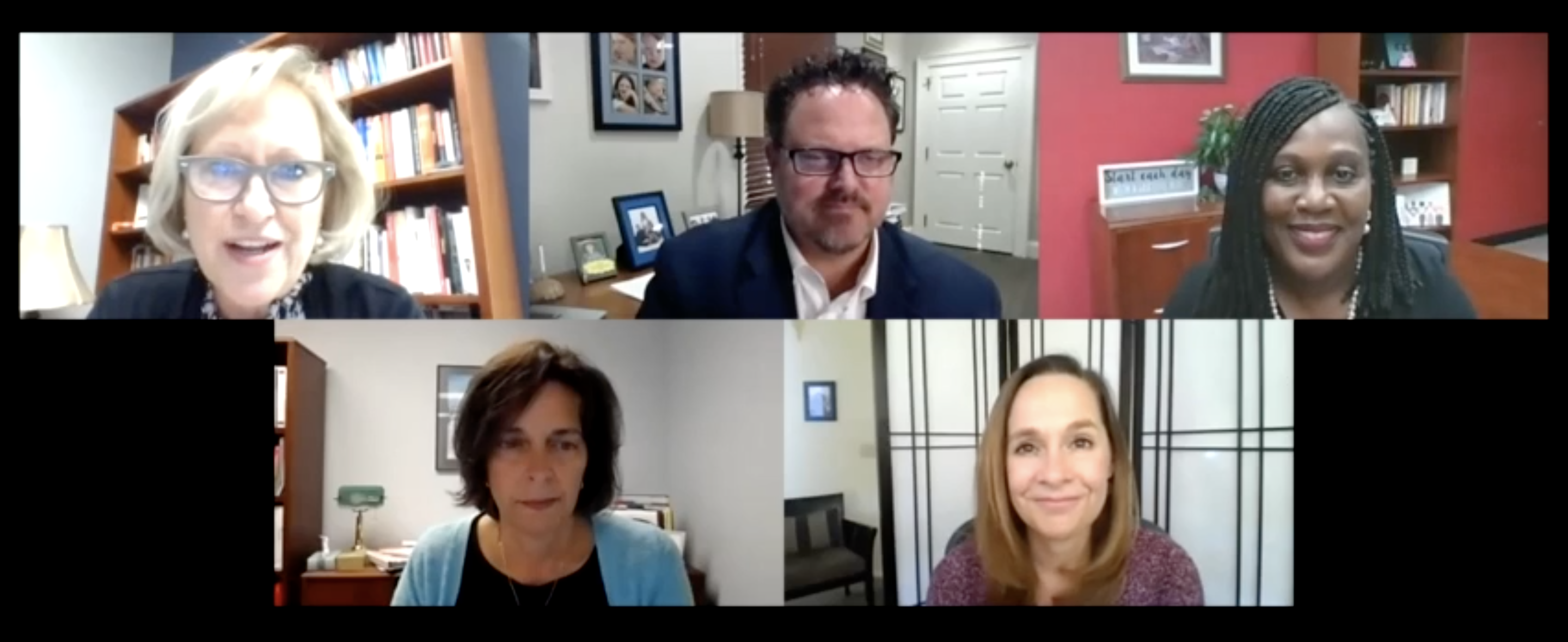By Adriana Rozas Rivera |
School systems nationwide faced abrupt changes last year as the United States grappled with a pandemic and a racial reckoning.
At the virtual panel “The Vision is Not Canceled” on Friday, Feb. 19, at AASA’s 2021 national conference, superintendents from three states discussed how this unprecedented period has affected learning environments and has led to a reimagination of education that will persist long after the COVID-19 pandemic.
Panelist Talisa Dixon, superintendent of Columbus City Schools in Columbus, Ohio, said the continuing public health crisis and the country’s reckoning with racial justice has propelled deeper conversations about equity within K-12 education.
“This time period is very different because we have had to face race, front and center. How do we treat our students because of the color of their skin,” Dixon said. “And that is a very different conversation than just conversations about opportunity gaps.”
Engaging the community and getting feedback are necessary to deconstruct the system and make it more equitable, Dixon said.
The superintendents also discussed how these societal forces are having an impact on their districts’ portrait of a graduate, which is their definition of the qualities and skills they expect of graduates.
School districts must design transparent instructional programs around students’ current needs, Dixon said.
“Why are we testing? Were we coming back? Why are we trying to figure out the learning loss? We need to start where kids are right now,” Dixon said.
Aaron Spence, superintendent of Virginia Beach City Public Schools in Virginia Beach, Va., said about 36,000 students have left his state’s public schools during the pandemic. That fact, he added, is a wakeup call for school leaders, making this a pivotal moment for public education.
“We now have to prove our value and our worth in this new environment,” Spence said.
Breaking the status quo can be a challenge, but to move forward, districts must be willing to adopt new educational strategies and decide what needs to be fixed and what longstanding practices ought to be abandoned. Spence cited standardized testing as a particular point of contention.
“Talking legislators out of standardized assessments is a really difficult thing to do,” Spence said.
Kelly Lyman, superintendent of Mansfield Public Schools in Mansfield, Conn., said the pandemic allowed her district’s schools to expand relationships with the community. The district developed a program with local libraries to create book kits designed to expose children and families to new types of literature. They also organized events on race and human rights to engage families.
“Empathy and understanding for others was greatly developed during this time,” Lyman said.
She contended the current health crisis must be used to think differently about educating children and to get rid of practices that aren’t effective in meeting the needs of students.
Lyman echoed Spence’s worry about students leaving the public school system for home schooling and other learning options. Communities should be open to changes as a result of the pandemic.
“They realize we’re changing to meet the needs that are out there,” Lyman said. “I think it’s a time that’s ripe for us to be able to make those changes.”
(Adriana Rozas Rivera is a graduate student at Syracuse University’s S.I. Newhouse School of Public Communications and an intern with AASA’s Conference Daily Online.)

